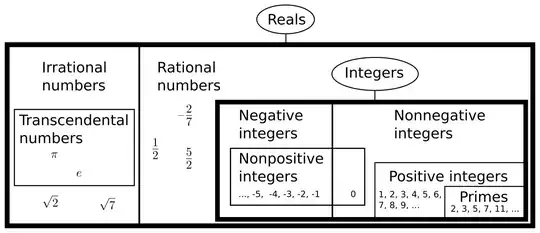I am working on a simple proof involving rational and irrational numbers. Is it safe to assume that if a number is not rational, it is irrational, and that if a number is not irrational, it is rational?
Example: Let $P(x)=\text{x is rational}$ and $Q(x)=\text{x is irrational}$.
Then is it true that $\forall x\ P(x)\text{ xor }Q(x)$?
